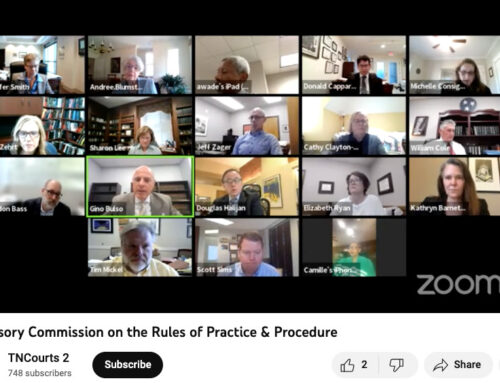News Sentinel: UT athletics board should reopen its meetings to public
The Knoxville News Sentinel published this editorial on Friday, Jan. 24, 2014, following a Jan. 19 story about the closed UT Athletics Board meetings by News Sentinel reporter Megan Boehnke. The editorial is reprinted here with permission:
The University of Tennessee’s Athletics Department is not so far removed from an NCAA investigation and a million-dollar budget deficit that it can thumb its nose at the public about what it is up to.
Yet that appears to be the position of the UT Athletics Board, which has chosen to deny the public access to its meetings, has stopped keeping minutes and has not provided written reports or recommendations to the athletics director.
Last year, the board met three times and discussed such topics as NCAA violations, an athletics budget of about $100 million and the academic performance of the school’s 500 student-athletes. The 18-member board — reduced last year from 41 members — held these meetings with no public notice or scrutiny.
On Wednesday the board denied reporters entry to its first meeting of this year. The board had included the media at its meetings since 1990, but the chancellor, athletics director and board chair decided last year to close the gatherings.
Thus, the athletic system of the state’s flagship university, a Division I program with 18 athletic teams, is saying that it doesn’t need to make its deliberations and issues known to its very loyal following: Just buy those tickets and make those big yearly donations — and don’t ask questions.
UT officials say the 63-year-old board is an advisory group and only makes recommendations to UT Chancellor Jimmy Cheek and Athletics Director Dave Hart. Also trotted out in defense of closed meetings was the tired old line that members can discuss some issues more freely. These are lame excuses that were used about 40 years ago when the state’s Open Meetings Act was new, and school boards and local governments were testing its limits.
It should be small comfort to the Vol Nation’s many fans that the athletics board of the largest public university in Tennessee is only skirting the spirit of the Sunshine Law, not necessarily the letter. But that is questionable. Even though UT officials claim the athletics board is not a policy-making body, the fact that two members of the UT Board of Trustees sit on the athletics board raises questions about its advisory capacity.
“If the group discusses something or deliberates something that is going to ultimately go to the full board of trustees, then that’s a potential problem,” said Frank Gibson, public policy director for the Tennessee Press Association. “If this group has no authority and no power to do anything, then why the need for all the secrecy?”
Said Deborah Fisher, executive director of the Tennessee Coalition for Open Government, a Nashville-based advocacy group of which the News Sentinel is a member: “It’s an age-old argument that we could do public business better if we don’t have to inform the public about it, but that’s not how it works in the United States or here in Tennessee.”
The athletics board should reconsider its decision to close its meetings, and the UT Board of Trustees should ensure that it complies. If the UT Athletics Department wants to build trust with its loyal fan base, one of the first steps involves transparency.




